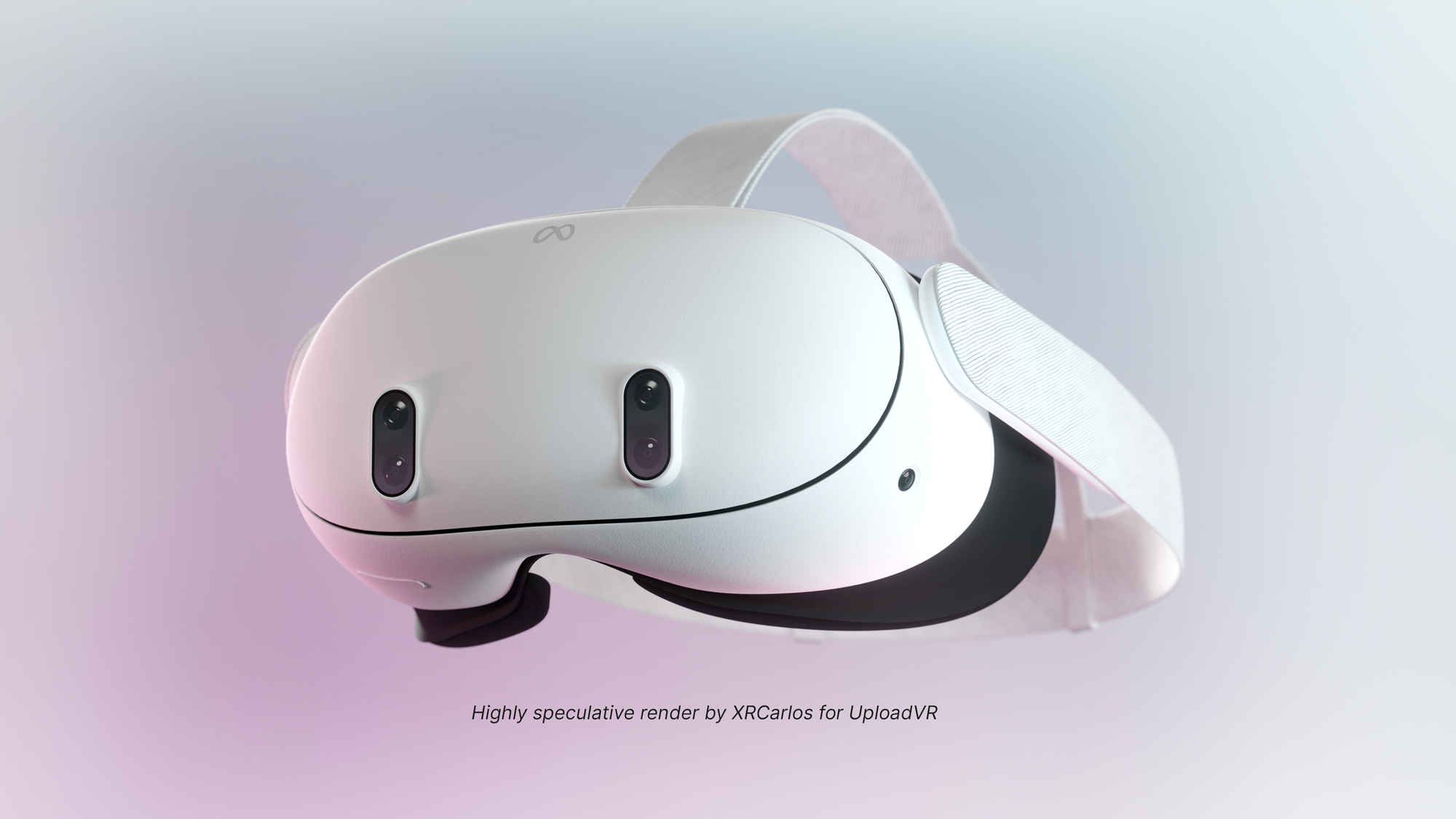Meta still plans to bring the upcoming cheaper version of Quest 3 to China via partnership with Tencent, The Information reports.
Cheaper Version Of Quest 3?
A Meta hardware roadmap meeting leaked to The Verge in March last year revealed the company planned to release a new headset after Quest 3 in 2024 “at the most attractive price point in the VR consumer market”.
Reports from The Wall Street Journal, Bloomberg, and a Chinese analyst who has been reliable in the past suggest this headset will feature the Snapdragon XR2 Gen 2 chipset from Quest 3 but use the old fresnel lenses from Quest 2 to hit a low enough price to replace it.
XR2 Gen 2 has a more than twice as powerful GPU, which some developers are already using to deliver much better graphics.
This upcoming headset is rumored to be called ‘Quest 3 Lite’ or ‘Quest 3S’, though there’s no strong evidence for any final name yet. Evidence found in the Quest firmware suggests it will also support color mixed reality.
Coming To China Via Tencent?
To sell many kinds of products in China, foreign companies must partner with a Chinese company or set up a local subsidiary. Meta and Tencent’s aim to sell Quest headsets in China was first reported by Chinese news outlet 36Kr early last year, though that report claimed the product was planned to be Quest 2.
In November The Wall Street Journal reported that the partnership, which it described as “provisional”, would now instead bring the upcoming cheaper version of Quest 3 to China instead. But in January a report from Sina Finance, citing another Chinese news outlet VRTUOLUO, claimed the partnership was suspended due to unresolved details on how to handle the specifics.
Now today, The Information’s Wayne Ma reports that Meta and Tencent still plan to release the cheaper version of Quest 3 in the Chinese market, in the fourth quarter of this year. Ma has a good track record of accurately reporting the future moves of Meta and Apple.
The reported structure of the partnership was that Tencent would sell and support the Quest headset in China, while both companies would work together on localization and translation of Quest Store content. Meta would get most of the device revenue, while Tencent would get most of the content revenue. This wouldn’t be a novel arrangement for Tencent. It has already been selling and supporting the Nintendo Switch in the Chinese market since 2019.

If the partnership truly happens, it could be significant competition for ByteDance’s Pico, which plans to release an updated Pico 4S this year. It would also offer a significantly cheaper (though less capable) alternative to Apple Vision Pro, which is also coming to China later this year and will also feature Tencent-provided apps and services.






